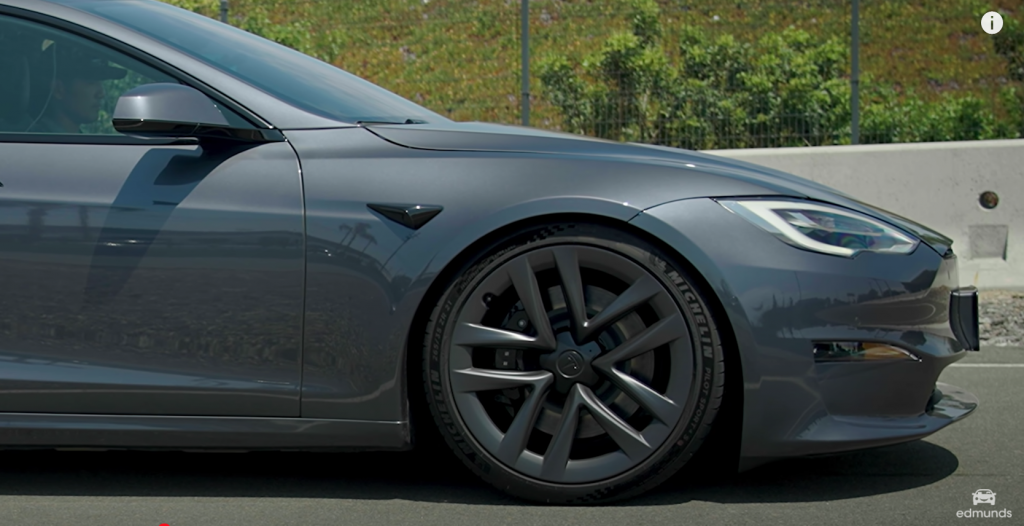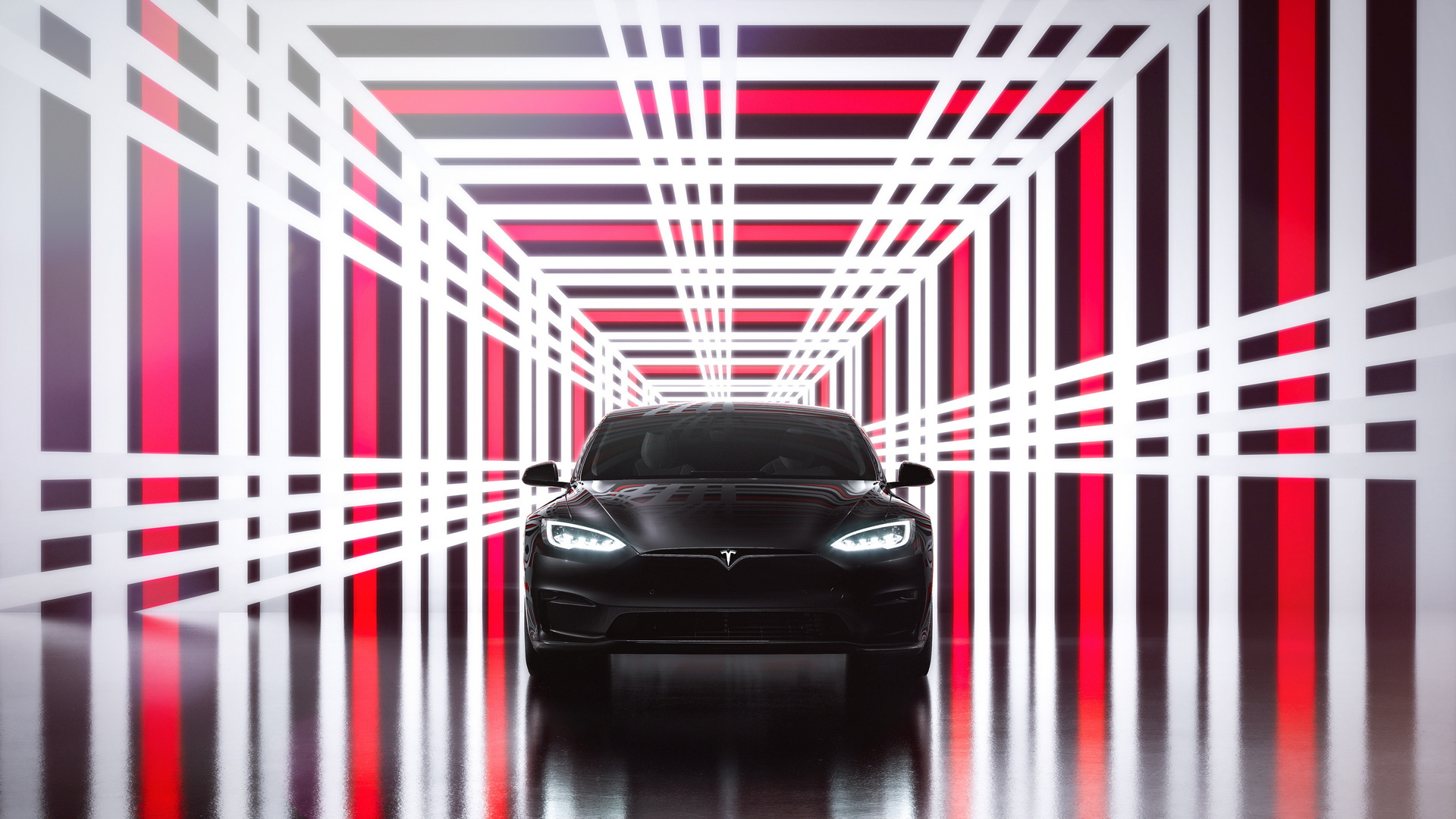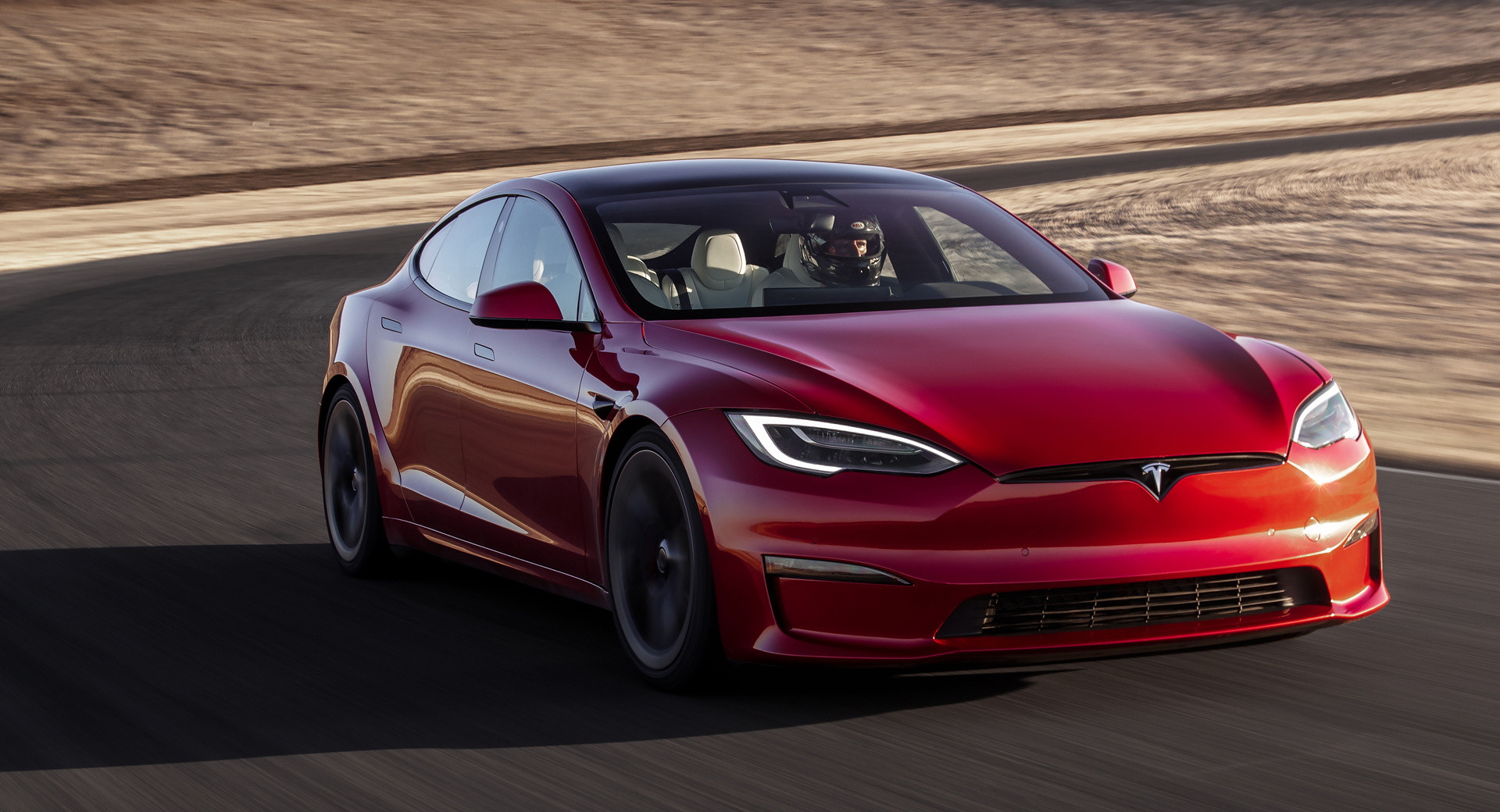A couple of months ago, Tesla released their latest version of the Model S: the Model S Plaid. The Plaid comes with a series of performance figures that outshine most production cars in existence — electric or otherwise. But does the ‘quickest production car ever made’ really live up to the hype? Alistair Weaver, the voice of Edmunds, goes behind the wheel to unravel the truth.
In terms of controversy, the Model S Plaid definitely took the cake this year. There were more than a few sceptics when it was announced that this four-door sedan would be the first car to achieve a 0-60 (0-96 km/h) time in under two seconds. After a bit over seven minutes of readying itself for drag strip mode (even though Tesla claimed it would take just three), Edmunds’ senior manager of vehicle testing, Jonathan Elfalan launches the Model S down the strip, and his reaction gives you a good idea of what it feels like to be behind the wheel of a car that claims to do 60mph from a standstill in under two seconds — but more or than later.
Read: Three-Point Turns? They’re A Hellish Experience With Tesla’s Yoke And Touchscreen Shifter
Darting down a straight line is good fun, but a sports sedan should also be about how well it performs around a track, and that’s where the Model S Plaid starts to fall behind. While things like all-wheel drive do help the 4,842-pound vehicle handle corners better, Weaver claims that many aspects (such as the interior materials and build quality) are nowhere near as close to its German rivals. In fact, he even got car sick driving the thing, which brings up the next question: is the Model S Plaid a one-trick pony?
Yes and no. Visually, the Model S Plaid looks almost identical to the Model S Long Range. Sure, you’d see slightly larger wheels and arches, a funky diffuser, and a subtle Plaid badge, but these would mostly go unnoticed unless you were a Tesla fanatic — and that’s a plus in my book. Who doesn’t love a good sleeper?
See: Model S Plaid Will Need A Software Update Before It Can Hit 200 MPH
It’s inside the Model S is where the major changes can be seen. The Plaid comes with a new cinematic display that looks more like the one in the Model 3 and Model Y. What’s possibly jarring is that the Model S Plaid’s gearbox will now be controlled via the cinematic display as well. There are also a few new options that will give you feedback on more technical stuff like suspension. And let’s not forget the $10,000 autopilot option, which Weaver deems as horrible. And that’s before the rant on the infamous yoke.
So, can the Model S plaid really do a 0–60 mph (0-96 km/h) in under two seconds? The Edmunds team only managed to get a personal best of 2.3 seconds, but if you read the fine print on Tesla’s website, you’d just about manage to find out a clause that claims that the time taken to travel the first foot of rollout during the launch must be deducted. If subtracted, Edmunds’s time would be 2.1 seconds, which is about the best you can get in a real-life situation.
Weaver mentions that this outrageous power might be just a bit much for a car that is meant to be a daily driver. With questionable track performance, it might seem somewhat silly to pay $40,000 more than the regular Model S.






